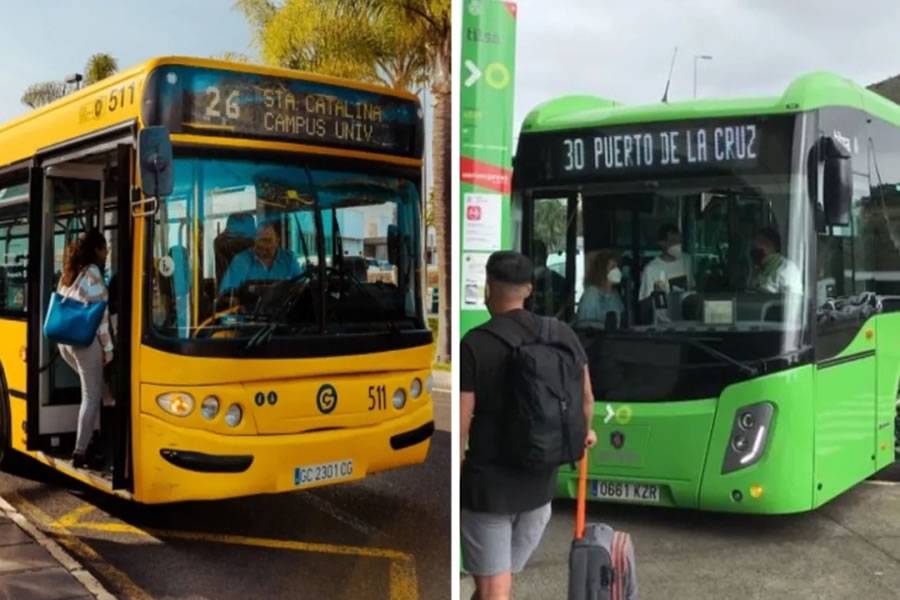Farewell to free buses in the Canary Islands: Public transport charges return this Thursday
- 23-01-2025
- National
- Canarian Weekly
- Photo Credit: Atlantico Hoy
The free bus service in the Canary Islands is coming to an end this Thursday, leaving residents facing transport costs once again. This change follows the rejection of the 'ómnibus' decree proposed by the Spanish central government, which aimed to extend free public transport throughout 2025.
The decree’s rejection in Congress, due to votes against it by the Partido Popular (PP), Vox, and Junts, has thrown public transport funding in the Canary Islands into uncertainty. This setback frustrates plans for affordable and sustainable mobility on the islands, a goal embraced by both local and regional authorities.
A Lost Multi-Million-Euro Subsidy
The failed decree included a budget allocation of over €100 million to subsidise bus journeys across the archipelago. This funding was critical to maintaining the cost-free transport policy introduced in recent years, which has significantly benefited residents. However, Wednesday’s vote in Congress exposed deep political divisions, leaving Canarians to face the consequences.
Despite this setback, the cabildos of Gran Canaria and Tenerife have pledged to keep buses and trams free for residents in 2025. They plan to fund the initiative locally, offering a glimmer of hope for continued accessible transport in these two regions.
Broader Implications for Canary Islanders
The impact of the decree’s rejection extends beyond public transport. Other key measures, such as pension increases and financial aid for victims of the DANA storm and the La Palma volcanic eruption, have also been shelved.
These policies, part of a package approved by the Council of Ministers in December 2024, were designed to ensure affordable access to essential services for vulnerable populations.
The PP has defended its stance by introducing a new proposal to guarantee pension increases, but the absence of immediate support for public transport and other measures has drawn sharp criticism from the Canary Islands’ regional government.
Effects on Mobility and Sustainability
The free bus initiative, championed by the Canary Coalition and implemented with state support, has played a crucial role in improving island mobility. It reduced reliance on private vehicles, alleviated road congestion, and contributed to environmental sustainability. Public transport saw a sharp increase in users, reducing millions of car journeys and lowering the islands’ carbon footprint.
However, this success came with challenges. Popular routes experienced overcrowding, particularly during peak hours, highlighting the need for infrastructure improvements alongside free transport.
What Lies Ahead?
The end of free public transport raises concerns for Canary Islanders, particularly as many families continue to face economic hardship. The debate now shifts to finding alternative solutions that can maintain the accessibility and sustainability of public transport.
Local and regional governments are exploring new funding models, but for now, the burden falls back on residents, who will need to pay for bus journeys starting this Thursday. The end of this popular initiative marks a significant change in mobility on the islands and has left citizens questioning the future of accessible and sustainable transport policies in the region.
Other articles that may interest you...
Trending
Most Read Articles
Featured Videos
TributoFest: Michael Buble promo 14.02.2026
- 30-01-2026
TEAs 2025 Highlights
- 17-11-2025



























































